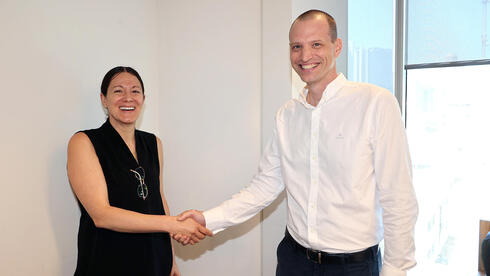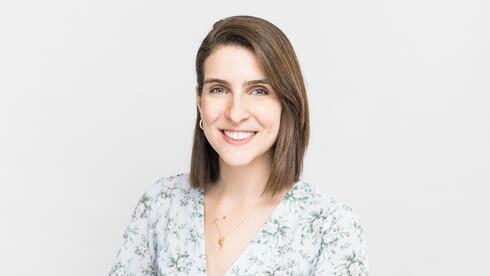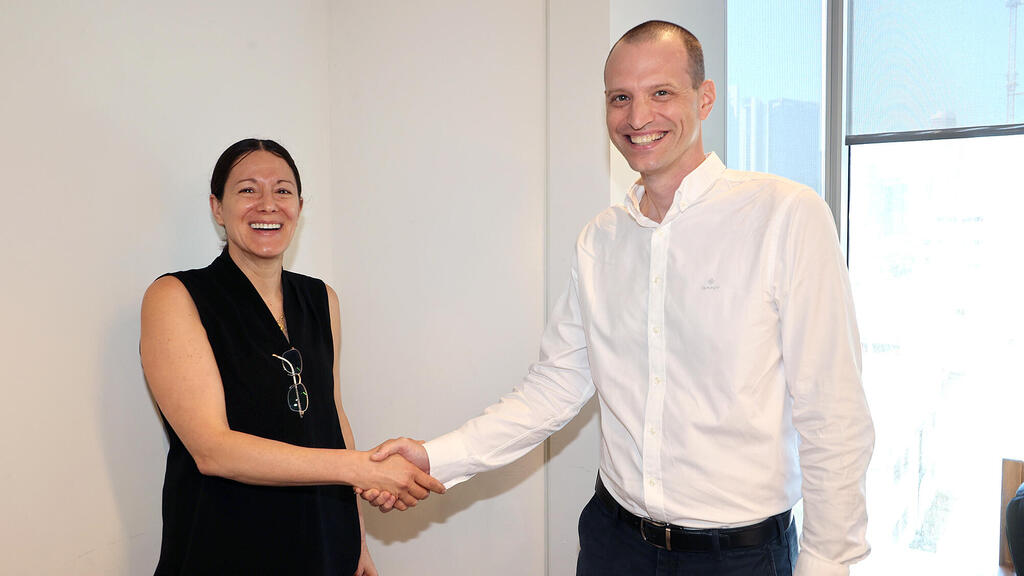
"Founding a company during a crisis for Israel and its people is a matter of pride"
Dr. Michal Tsur from Remepy and Shahar Karny from PhenoTA both work in the Health Tech field and talked about how to solve problems. The meeting was held as part of the Growth+ project by Calcalist and Poalim Tech, in which one-on-one counseling and mentoring sessions are held between experienced entrepreneurs and early-stage start-up companies
Dr. Michal Tsur, founder and CEO of Remepy, which develops hybrid medicines, met with Shahar Karny, co-founder and CEO of PhenoTA, a deep tech startup in the health field that develops AI-based technology to enable access to advanced blood tests. The conversation was part of the Growth+ project by Calcalist and Poalim Tech, aimed at strengthening the resilience of the high-tech industry in Israel. This initiative features a series of one-on-one meetings between experienced entrepreneurs and early-stage start-up companies, providing advice, support, and knowledge about entrepreneurship, creativity, managing start-ups, and building companies for growth.
Michal, tell me about a crisis you encountered at the beginning of your journey and what you learned from it that can help young entrepreneurs?
"The challenge I have encountered several times is launching a product that I believed solved a significant problem, only to discover that the problem was less substantial or not solvable by the product. This issue, known as Product-Market Fit, is one of the biggest problems entrepreneurs face. Some continue without adjusting to the market fit, but the best entrepreneurs continuously identify and fix this. In all my previous ventures (I was one of the founders of Cyota and Kaltura), for example at Cyota, we initially released a product that didn’t address a big problem. However, we later identified the major issues of fraud and security in banks and developed a solution that I believe is still used by banks today. Similarly, at Kaltura, we started with a product we thought solved a major problem, realized it didn't, and then focused on the primary issue of video infrastructure. At Remepy, learning from past mistakes, we spent a whole year talking to people in the pharmaceutical market, doctors, and scientists to identify the right opportunity before proceeding."
Shahar, what is the biggest difficulty you have encountered in the last year?
"We closed a funding round at the end of 2023 and started operations in the first quarter of 2024. We established a company registered in Israel with investment from the Innovation Authority. Founding a company during a crisis for Israel and its people is a matter of pride, especially in our field that affects everyone’s lives. It’s amazing that during this time of war, investors chose to invest in an Israeli company. We are developing AI-based technology here in Israel that will provide easier access to advanced blood tests, which currently face many barriers."
What did you learn from each other?
Michal: "We are both in the relatively early stages of a new venture. Despite my experience, we are both in fields that are new to us. It’s interesting to see our different approaches to solving problems. I work in hybrid drugs that combine pharmacology and software to enhance drug effects. We need many second-level blood tests, which are not readily available, and PhenoTA aims to make these accessible to every patient. I learned they are tackling a very significant problem."
Shahar: "I found our first client in Michal. She brings a wealth of business knowledge, especially in Health Tech, where business acumen is crucial. This made for a very interesting conversation."
Tell us about something interesting or surprising you discovered about each other today.
Michal: "Shahar’s and my fields of activity are very interesting and surprisingly interconnected. In our world, it’s rare for fields to be tangential because there are many subspecialties."
Shahar: "We spoke and now understand the key points of each other's work."














